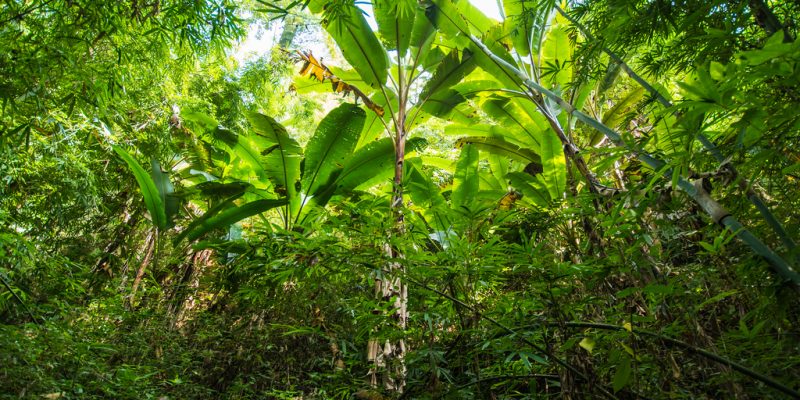Authorities planted 1,500 trees on 7 October 2019 in the Tagro forest massif. This reforestation action aims to combat the risk of extinction due to deforestation and climate change.
In early October, local authorities rehabilitated the Tagro forest, located in the Grand Zattry, a town in western Ivory Coast. It is an administrative subdivision of the Soubré division, in the Nawa region, in the Bas-Sassandra district. On October 7, 2019, the Water and Forestry Department conducted a tree planting session on Tagro Hill. In one day, 1500 feet of teak and frakes (tropical trees) were planted in this forest massif.
For the Regional Director of Nawa Waters and Forests, Lieutenant-Colonel Lucie Kotchi Kesse Tafoua, this activity “is part of the project to rehabilitate sacred forests in accordance with the new forest policy for the preservation, rehabilitation and extension of forests.” The authorities also took the opportunity to raise awareness of the preservation of this forest, which plays a crucial role in the preservation of the ecosystem and is a cultural symbol for the local population. It is in this respect that traditional chiefs have been called upon, as guardians of tradition, to support reforestation.
A reforestation operation will be launched by the Minister of Water and Forestry of Ivory Coast, Alain Richard Donwahi, on the 15th of November 2019. The initiative to “save forests”, as the organisers imagined, will be carried out under the theme “one day for a million trees”.
The Tagro Forest Rehabilitation Project is not far from the national policy of preserving, rehabilitating and extending Côte d’Ivoire’s forests, adopted in 2018. This government strategy is based on six main axes: protecting classified forests that are more than 75% conserved, identifying and making available space for useful forests, strictly enforcing the logic of classified forests, applying the agroforestry regime in the rural domain, redeveloping forests that are more than 75% classified and completing the legislative and regulatory framework in this area.
Luchelle Feukeng







